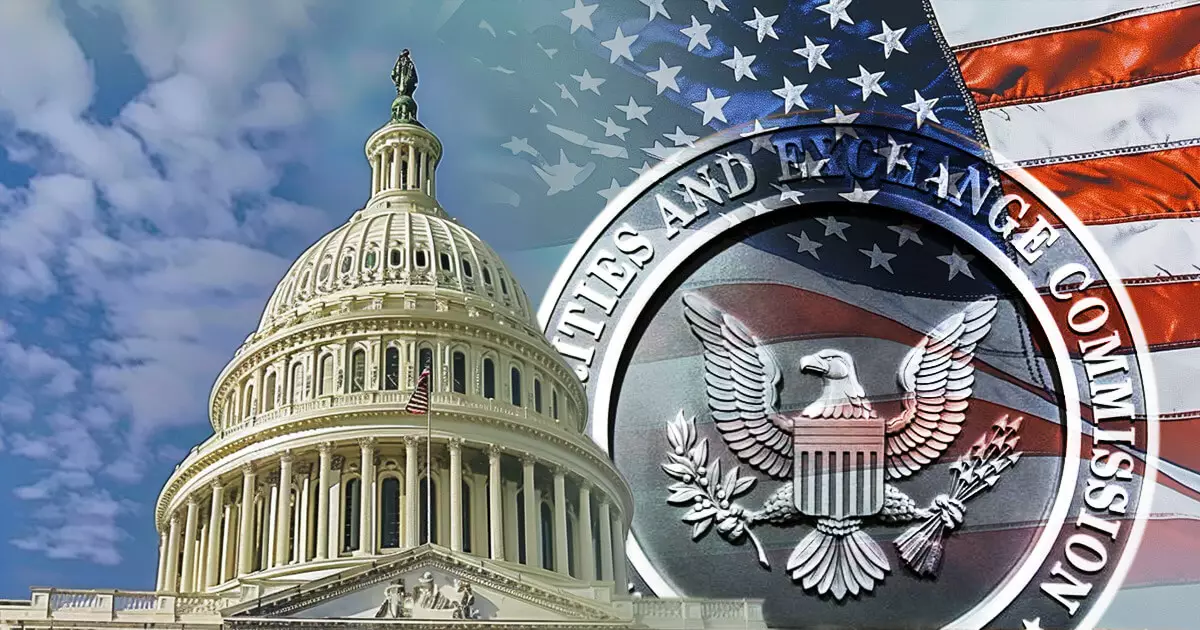In a recent congressional hearing, SEC Chair Gary Gensler faced intense scrutiny regarding the regulatory agency’s strategies for managing the burgeoning cryptocurrency market. An immediate point of contention arose when Gensler’s written testimony notably failed to address digital assets, which left a vacuum for inquiry and criticism from lawmakers. This omission raised eyebrows and sparked a vital discussion about the effectiveness of the SEC’s current regulatory framework and whether it adequately safeguards investors in the fast-evolving crypto space.
The absence of explicit guidelines on cryptocurrency regulation has led to accusations of “regulation by enforcement,” a strategy that raises significant concerns. House Financial Services Committee Chairman Patrick McHenry voiced these concerns explicitly, noting that the House had advanced the FIT 21 Act as a response, advocating for clearer rules and stronger consumer protections. The passage of this legislative initiative, supported by a broad bipartisan coalition, signaled an urgent call for a balanced approach to the inherently volatile crypto market.
A significant debate emerged surrounding the FIT 21 Act’s approach to defining decentralization, particularly a contentious 20% ownership threshold aimed at facilitating regulatory oversight. Critics argue that allowing anonymity in self-hosted wallets could create challenges in enforcement, potentially jeopardizing investor protection measures. Commissioner Hester Peirce’s apprehensions about the SEC’s heavy reliance on enforcement actions without providing a clear framework highlight a glaring oversight in regulatory strategy. Peirce argued that this approach is fundamentally flawed for investor protection, as it fosters an environment of uncertainty regarding compliance with SEC regulations, crucial in building investor trust.
Furthermore, Commissioner Mark Uyeda echoed these sentiments, emphasizing the need for the SEC to delineate how current securities laws—like the Howey Test—apply to digital assets. The absence of such clarity leaves many industry participants in a state of confusion, navigating a complex web of existing laws without sufficient guidance from the SEC. This lack of direction strikes at the heart of the industry’s integrity, creating barriers to innovation while raising the stakes for potential legal repercussions.
In defense of current practices, Gensler asserted that the existing framework governing digital assets is robust enough to safeguard investors effectively. He maintained that while the landscape for digital assets continues to evolve, fundamental compliance requirements remain intact regardless of the asset’s tokenization. This perspective, while rooted in a commitment to investor transparency, fails to address the broader calls for clear regulatory guidance tailored specifically to the intricacies of the crypto market.
The inquiry into celebrity endorsements and potential “pump and dump” schemes further illustrated the challenges regulators face in this uncharted territory. Representative Bill Foster’s concerns about the efficacy of current laws to manage influencer-driven promotions without adequate disclosure highlighted a significant gap in regulatory enforcement. Gensler’s response of acknowledging the SEC’s limited resources to track illicit influencer activities underscored the pressing need for a more proactive approach to regulation.
The divergent opinions among SEC commissioners were starkly indicative of the internal challenge the agency faces. While some members called for explicit statutory definitions and a recalibrated regulatory framework from Congress, others believed the SEC possesses enough existing authority to carve out a clearer path forward. This internal discord reflects a broader tension between maintaining robust consumer protections and fostering an innovative environment for cryptocurrency and blockchain technologies.
The SEC’s hearing also touched upon broader issues such as cybersecurity threats and transparency in financial reporting, areas that are undoubtedly critical to overall market health. Yet, the lack of focused initiatives targeting the unique challenges of the cryptocurrency sector signifies an oversight by the agency, highlighting a disconnect between regulatory priorities and the realities of an industry that demands agility and forward-thinking engagement.
As stakeholders from various sectors advocate for stronger consumer protection and clearer rules in the digital asset space, a call for collaboration becomes imperative. Regulators must move beyond reactivity and work closely with industry participants to establish a practical regulatory framework that nurtures innovation while safeguarding investors. The future of cryptocurrency regulation hinges on this essential balance, allowing the sector to flourish without compromising the security of investors, thereby fostering a sustainable digital asset ecosystem.


Leave a Reply